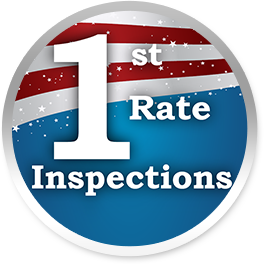
Understanding the real estate market demands studying new terms, especially when buying or selling property. Real estate jargon, such as escrow, earnest money, and closing costs, often confuses buyers and sellers.
Knowledge about real estate terms during property transactions is essential to make a wise decision and prevent costly mistakes.
The following blog provides a detailed explanation of 11 commonly used real estate terms. Every buyer and seller needs to understand them for successful and hassle-free real estate transactions.
1. Escrow
When you buy or sell real estate property, the escrow operates as an independent mediator to formally conduct all financial transactions.
During the buying process, both parties keep their funds and documentation in an escrow account until the seller satisfies every condition of the deal. For example, the down payment remains in an escrow account held by a neutral representative until both parties complete inspection and financing requirements.
Escrow works like a financial security system between parties and holds payment until all agreed-upon conditions are finalized.
2. Earnest Money
Earnest money functions as a sign of genuine buyer commitment. To demonstrate absolute interest in buying the property, the buyer provides a modest financial deposit to the seller.
In a successful deal, the earnest money deposit will become part of the down payment amount or contribute to the closing expenses. In case the deal doesn’t go through because of the buyer, the seller might keep it as compensation.
Most property deals require earnest money between 1% and 3% of the total purchase amount.
3. Closing Costs
Real estate buyers and sellers must pay all fees and expenses leading up to the final settlement, which comprises the closing costs. For buyers, it includes loan fees, insurance premiums on titles, and the costs of property inspections.
Agent commissions, transfer taxes, and repairs required by the buyer are among the costs sellers pay when closing a real estate deal. All buyers need to plan ahead for these expenses since they can reach 2-5% of the home price.
Homebuyers must understand real estate terms like closing costs to avoid unexpected expenses during the final phase of a purchase.
4. Appraisal
A bank demands property assessments to grant mortgages and home loans. The property value is determined through professional appraisals conducted by licensed appraisers.
The appraiser examines comparable homes in the area while considering the property’s condition, size, and location. The property value must justify the amount of the loan requested by the lender.
Buyers must be aware that lower-than-offer appraisals will often require negotiation between the seller and buyer or additional cash from the buyer.
5. Pre-Approval vs. Pre-Qualification
The next real estate term on our list is actually a comparison of two popular terms. When getting a mortgage application approved by a lender, you will often hear the terms pre-approval and pre-qualification”.
Pre-qualification and pre-approval serve different purposes in discovering your borrowing capacity, although they share some basic similarities.
The lender examines basic financial data during pre-qualification to provide a potential borrowing amount.
Pre-approval is more official. It constitutes a deep dive into your finances, including your credit check, to borrow an established loan.
These terms offer buyers a valuable understanding of their loan products and create more powerful loan proposals for sellers.
6. Contingency
Before closing a sale, buyers must fulfill conditions known as contingencies. Standard contingencies include the inspection contingency, which provides buyers with an exit option following unfavorable inspection results.
In contrast, the financing contingency enables sellers to confirm that a secured loan condition is necessary for transaction completion. The buyer gains the right to disengage from the transaction when specified conditions fail to materialize, even though they retain their earnest money payment.
The protection contingencies offer buyers the advantage that sellers benefit from when working with multiple offers.
7. Title Insurance
Title insurance shields buyers and homeowners from legal property title issues, including previous homeownership rights or outstanding financial claims on the property.
An integral component of property purchases, title insurance, becomes effective at closing to safeguard the buyer’s financial investment from unknown problems connected to ownership missed during closing.
8. Home Inspection
A common real estate term, it refers to the process of getting a home inspected and is one of the essential requirements for property buyers. The detailed evaluation of the house includes structural, plumbing, electrical systems, and property safety inspections.
Although not mandatory, inspections are strongly recommended because they reveal possible upcoming issues the property may confront.
To protect their investment, sellers should inspect their homes before listing to fix problems that potential buyers might otherwise detect.
9. MLS (Multiple Listing Service)
Real estate professionals utilize the MLS database to exchange property listings among their professional groups. Agents use this system to discover all active properties in their area, as it serves as an online property search source.
Homes listed on the MLS are typically shared exclusively with agents when their clients use them to buy properties.
Selling properties on the MLS database is a primary method to achieve maximum visibility of your home to potential buyers.
10. Deed
A property transfer occurs through a deed because this legal document establishes the change of ownership between parties. The property automatically becomes the buyer’s when the sale concludes, along with the signed deed. Different types of deeds, such as warranty deeds and quitclaim deeds, offer the buyer varying levels of protection.
11. Adjustable-Rate Mortgage (ARM)
Real estate borrowing through adjustable-rate mortgages allows the interest rate to shift according to market fluctuations.
These mortgages typically initiate at rates lower than fixed mortgages but will eventually become pricier after the specified period, ultimately increasing monthly costs.
Any person considering buying a property should learn about adjustable-rate mortgage risks when holding the property long-term.
Conclusion: Mastering Real Estate Terms For A Smooth Transaction
Learning real estate terms helps people make decisions aligned with their real estate objectives in an otherwise challenging industry. The outlined terms provide sellers and buyers alike with essential knowledge to easily handle contracts, successful negotiation stages, and final transactions.
The home inspection services from 1st Rate Inspections deliver comprehensive assessments, enabling you to feel secure before making real estate choices. Our expert inspectors ensure property maintenance by showing you all the terms and details throughout the inspection.
Reach out to 1st Rate Inspections immediately for a comprehensive examination that explains your property values precisely.





